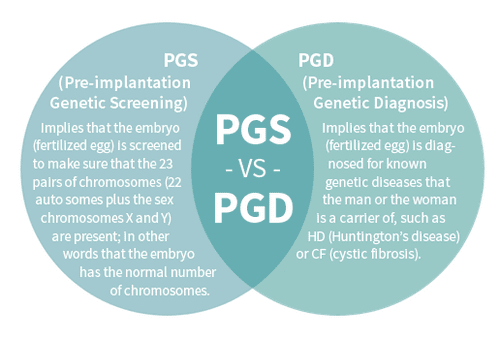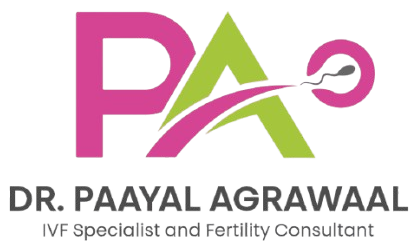PGD/PGS
Infertility and IVF - PGD/PGS
Book Appointment
For Appointment

What is PGD/PGS?
PGD (Preimplantation Genetic Diagnosis) and PGS (Preimplantation Genetic Screening) are genetic tests performed on embryos during an in vitro fertilization (IVF) cycle to assess their genetic health before being implanted in the uterus.
PGD (Preimplantation Genetic Diagnosis): This test is used to detect specific genetic disorders or inherited conditions, such as cystic fibrosis, Tay-Sachs disease, or sickle cell anemia. PGD is typically recommended for couples who are at risk of passing on genetic diseases due to family history or known genetic mutations.
PGS (Preimplantation Genetic Screening): PGS involves screening embryos for chromosomal abnormalities, such as aneuploidy (an abnormal number of chromosomes), which can cause conditions like Down syndrome, Turner syndrome, or miscarriage. It is typically used for older women or those with a history of recurrent pregnancy loss.
Both PGD and PGS involve removing a few cells from an embryo at the blastocyst stage, and analyzing them in the lab to check for genetic or chromosomal issues. Only the healthiest embryos are selected for transfer, improving the chances of a successful pregnancy and a healthy baby.
Benefits of PGD/PGS
- Increased Chances of a Healthy Pregnancy – PGD and PGS help identify genetically healthy embryos, which can significantly reduce the risk of passing on inherited genetic disorders or chromosomal abnormalities, leading to healthier pregnancies.
- Reduced Risk of Miscarriage – By screening for chromosomal abnormalities (via PGS), embryos with the correct number of chromosomes are selected, lowering the likelihood of miscarriage, which is common in older women or those with fertility issues.
- Higher IVF Success Rates – Selecting the most viable embryos increases the chances of implantation and a successful pregnancy, improving overall IVF success rates.
- Prevention of Genetic Disorders – PGD allows couples at risk of passing on specific genetic conditions (like cystic fibrosis or sickle cell anemia) to avoid these conditions in their child.
- Personalized Family Planning – PGD and PGS provide more control over family planning, helping parents make informed decisions about the health of their future children.
- Improved Outcomes for Older Women – For women over 35, PGS helps in selecting embryos with normal chromosomes, addressing age-related fertility issues and reducing the risk of chromosomal conditions like Down syndrome.
